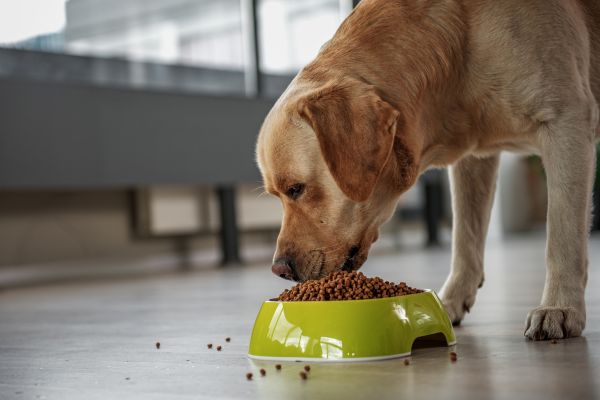
Ensuring your pet lives a long, healthy life starts with proper nutrition. Learning about pet nutrition and understanding how to meet their daily nutritional needs can greatly improve your pet's overall well-being.
What does “nutrition” mean?
Pet nutrition means giving your pet a balanced diet that covers all their daily dietary needs. This diet should include proteins, fats, carbohydrates, vitamins, and minerals. Each of these nutrients plays an important role in keeping your pet healthy, supporting their growth, and preventing diseases.
Why Meeting Nutritional Needs Are Important
Meeting your pet's daily nutritional needs is crucial for their health, energy, and long life. Proper nutrition helps maintain their immune system, supports organ function, and keeps their coat shiny and skin healthy. When pets don't get the right nutrients, they can develop a range of health problems. These can start with minor issues like dry skin, dull fur, or digestive troubles but can quickly escalate to more serious conditions such as diabetes, heart disease, and weakened immunity. Ensuring your pet's diet is well-balanced is one of the most important things you can do to promote their overall well-being and prevent these health issues.
Understanding Pet Food Nutritional Values
Getting Nutrition From Pet Food
Pet foods are carefully formulated to provide a balanced mix of essential nutrients, including proteins, fats, carbohydrates, vitamins, and minerals. These formulations aim to meet the dietary needs of pets at different life stages and health conditions. Understanding the nutritional values listed on pet food labels can help you ensure your pet is receiving the right balance of nutrients necessary for their health and vitality. However, despite these formulations, some pets may still require additional supplementation to address specific health needs or deficiencies.
While commercial pet foods are formulated to meet basic nutritional standards, the quality and bioavailability of nutrients can vary widely. It's important to scrutinize the ingredient list and nutritional analysis on pet food labels to ensure that your pet receives a well-balanced diet. Key factors to consider include the sources of proteins, fats, and carbohydrates, as well as the presence of essential vitamins and minerals. Additionally, some pets may have unique dietary needs that require tailored supplementation beyond what is typically provided in standard pet food formulas. By thoroughly understanding pet food nutritional values, you can make informed decisions that best support your pet's health and well-being.
Common Pet Food Nutrients include:
- Proteins: Essential for growth and repair of tissues.
- Fats: Provide energy and support cell function.
- Carbohydrates: Offer a source of energy.
- Vitamins and Minerals: Vital for various bodily functions and overall health.
Common Nutritional Deficiencies in Pet Diets
Even with careful formulation, many commercial pet foods can lack certain essential nutrients, leading to deficiencies in pets. Nutrient deficiencies in pets can lead to various health problems. Lack of Omega-3 fatty acids can result in poor brain and heart health, as well as skin and coat issues. Deficiencies in vitamins A, D, and E can weaken the immune system, impair vision, and affect bone health. Insufficient calcium and phosphorus can cause weak bones and dental issues. A lack of trace minerals such as zinc and selenium can lead to skin problems, poor wound healing, and compromised immune function. Ensuring a well-balanced diet with these essential nutrients is vital for maintaining your pet's overall health.
Common Nutrient Deficiencies include:
- Omega-3 fatty acids
- Vitamins A, D, and E
- Calcium and phosphorus
- Trace minerals such as zinc and selenium
Challenges in Meeting Nutritional Needs with Pet Food
Quantity vs. Quality: Why 7 Cans of Food Might Be Necessary
Meeting all of your pet's nutritional needs can sometimes mean feeding them large quantities of food. This is because commercial pet foods, while designed to provide essential nutrients, often do so at levels that require significant portions to meet daily requirements. For example, to fully meet the basic nutritional needs of your pet, you might have to provide up to 7 cans of food each day. This approach is neither practical nor cost-effective for most pet owners. Feeding such large amounts can lead to overeating, resulting in obesity and related health issues. Additionally, managing and storing large quantities of pet food is cumbersome, and the financial burden can be substantial. This highlights the importance of considering high-quality, nutrient-dense alternatives, such as supplements, to efficiently and effectively meet your pet’s nutritional needs without the need for excessive feeding.
The Inconvenience and Cost of Overfeeding
Overfeeding your pet in an attempt to meet their nutritional needs can have several negative consequences. Firstly, excessive feeding often leads to obesity, which in turn increases the risk of numerous health problems such as diabetes, joint issues, heart disease, and reduced lifespan. Managing an overweight pet can require additional veterinary care, medications, and specialized diets, further complicating their health regimen.
Moreover, the financial burden of purchasing large quantities of food to meet daily nutritional requirements can be prohibitive for many pet owners. The cost of constantly buying enough food to ensure your pet receives all necessary nutrients can quickly add up, straining your budget. This is particularly challenging for households with multiple pets or those with larger breeds that naturally require more food.
Beyond the financial aspect, there is also the inconvenience of storing and managing large volumes of pet food. This can take up significant space in your home and require careful planning to avoid spoilage and waste. Additionally, the time and effort involved in feeding your pet multiple times a day to ensure they get the right amount of nutrients can be overwhelming.
Considering these challenges, it becomes clear that finding more efficient ways to meet your pet’s nutritional needs, such as high-quality supplements, can provide a more convenient, cost-effective, and health-conscious solution.



